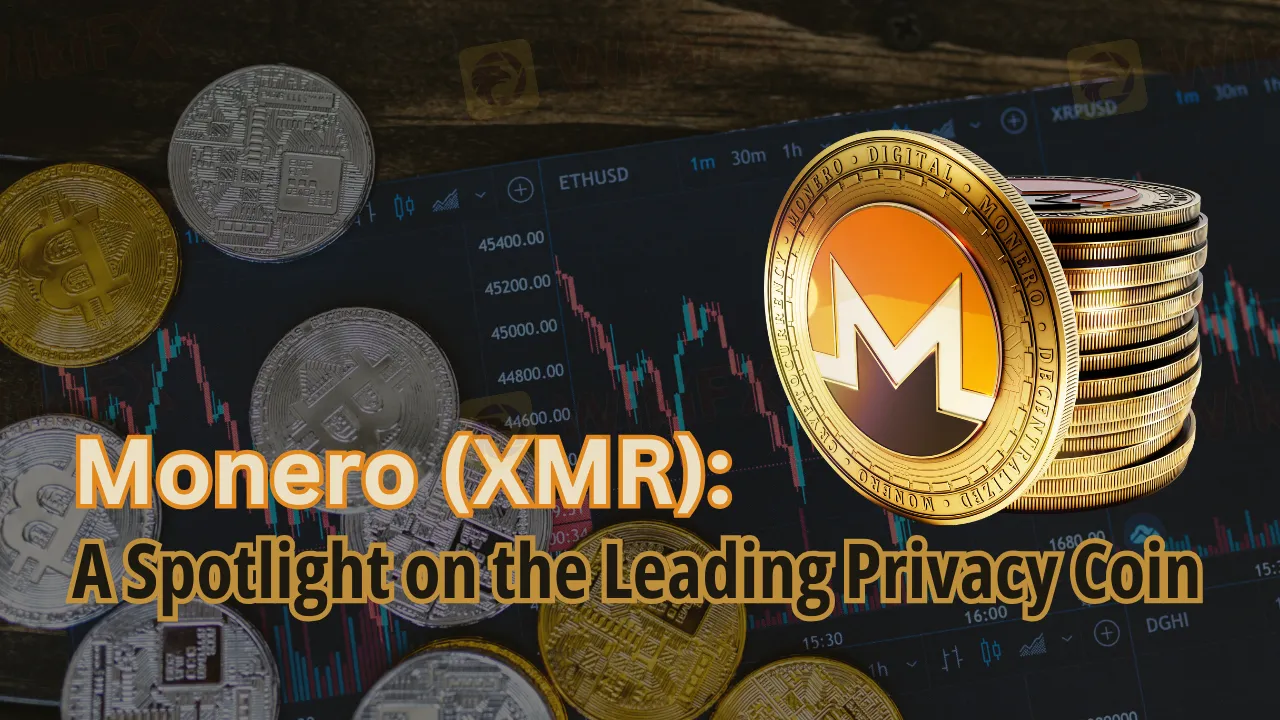简体中文
繁體中文
English
Pусский
日本語
ภาษาไทย
Tiếng Việt
Bahasa Indonesia
Español
हिन्दी
Filippiiniläinen
Français
Deutsch
Português
Türkçe
한국어
العربية
Monero (XMR): A Spotlight on the Leading Privacy Coin
Abstract:Explore Monero (XMR), the king of privacy coins. Discover its unique origin, standout privacy features, and the challenges it faces in the ever-evolving digital finance realm.

Monero: What's the Buzz?
Monero, often dubbed XMR, is the shining star in the realm of privacy-focused digital currencies. Unlike many that branched out from Bitcoin, Monero took a different origin path, ensuring that your transactions remain a secret, always. But how did Monero come to be, and why is it so special?
The Birth of Monero
Rewind to 2014. That's when Monero stepped into the scene. But its roots can be traced back to a different digital currency: Bytecoin. Bytecoin was cool because it had some groundbreaking privacy tools, but there was a hitch. About 80% of Bytecoin was already 'created' or 'premined' even before it got into the hands of everyday people.
To give everyone a fair chance, some developers – keeping their identity a secret – took Bytecoin, made some changes, and called it Bitmonero. Bitmonero went through a name change and became the Monero we know today.

Why Monero Stands Out
So, why all this fuss about Monero? Its because Monero has some nifty tools to keep things ultra-private:
Ring Signatures: This tool cleverly mixes your transaction with others. It's like mixing different colored paints; once mixed, you can't tell which color came from where.
Ring-CT and Stealth Addresses: These make sure that no one can see how much you're sending or who you're sending to.
Random: This is a tool that lets anyone mine Monero using just their computer, keeping the currency more open and democratic.
Dandelion++ and Bulletproofs: These are techy terms, but in simple words, they make sure your transactions are super private and cost less to send.
While these tools are cool, they do raise eyebrows. Regulators, those in charge of financial rules, sometimes aren't thrilled about something so secret. But Monero lovers argue that it gives people power over their money.

Monero in Todays World
Monero isn't just for secret agents. More shops and businesses are accepting it, making it more mainstream. But it's not without competition. There are other digital coins like Dash, Mask Network, and Zcash that also promise privacy.
Yet, Monero is a big fish in this pond. Of all the money in privacy coins, more than half is in Monero.
The Future: Not Without Challenges
There's always a twist in the tale. Some tech companies say they've got tools that can peel back Monero's privacy layer, kind of like finding out the secret ingredient in your grandma's famous pie.
On top of that, other coins want to take Monero's crown, and regulators are always watching closely.

In a Nutshell
Monero, or XMR, is the king of privacy coins, making sure your digital money moves in the shadows. It‘s loved by many for its strong stand on privacy but faces hurdles on its journey. Like all things digital, the story keeps evolving. For those who like to stay updated on crypto happenings, there’s the WikiFX App you can check out.
Get the WikiFX App here: https://www.wikifx.com/en/download.html.

Disclaimer:
The views in this article only represent the author's personal views, and do not constitute investment advice on this platform. This platform does not guarantee the accuracy, completeness and timeliness of the information in the article, and will not be liable for any loss caused by the use of or reliance on the information in the article.
Read more

Common Tactics Used in Online Trading Fraud Today
Know the top online trading scams of 2025, from fake apps to pump-and-dump tricks. Simple tips to spot and avoid them, keeping your money safe in this easy guide.

Vanuatu Passes VASP Act to Regulate Crypto and Digital Assets
Vanuatu's new VASP Act regulates crypto businesses, enforcing strict licensing, AML/CFT compliance, and investor protections.

Should You Beware of Forex Trading Gurus?
Know the reality behind forex trading gurus, examining their deceptive tactics, inflated promises, and the risks associated with trusting them for financial advice.

Why the SEC Rejected the First U.S. Bank-Issued Stablecoin
The SEC rejected the first U.S. bank-issued stablecoin, citing regulatory concerns. This decision highlights the ongoing challenges in crypto asset classification and oversight.
WikiFX Broker
Latest News
Exposing the Top 5 Scam Brokers of March 2025: A Closer Look by WikiFX
Gold Prices Climb Again – Have Investors Seized the Opportunity?
Webull Launches SMSF Investment Platform with Zero Fees
Australian Regulator Warns of Money Laundering and Fraud Risks in Crypto ATMs
The Withdrawal Trap: How Scam Brokers Lure Victims into Paying More
FCA to Investors: Think Twice Before Trusting These Brokers
Trump\s tariffs: How could they affect the UK and your money
HTFX Spreads Joy During Eid Charity Event in Jakarta
How Will the Market React at a Crucial Turning Point?
Australian Authorities Joins Forces with Philippine Authorities to Combat Cyber Scams
Currency Calculator







